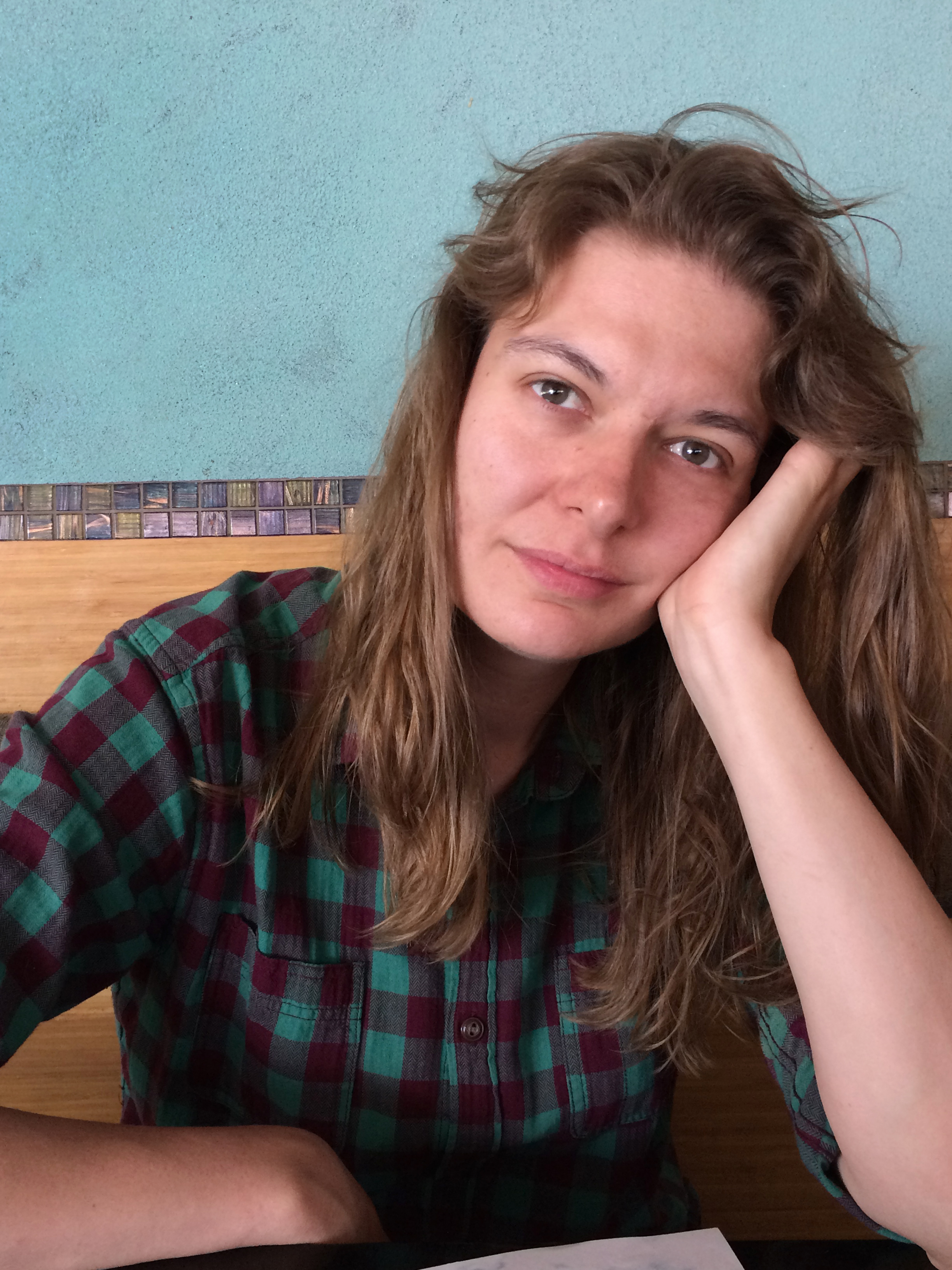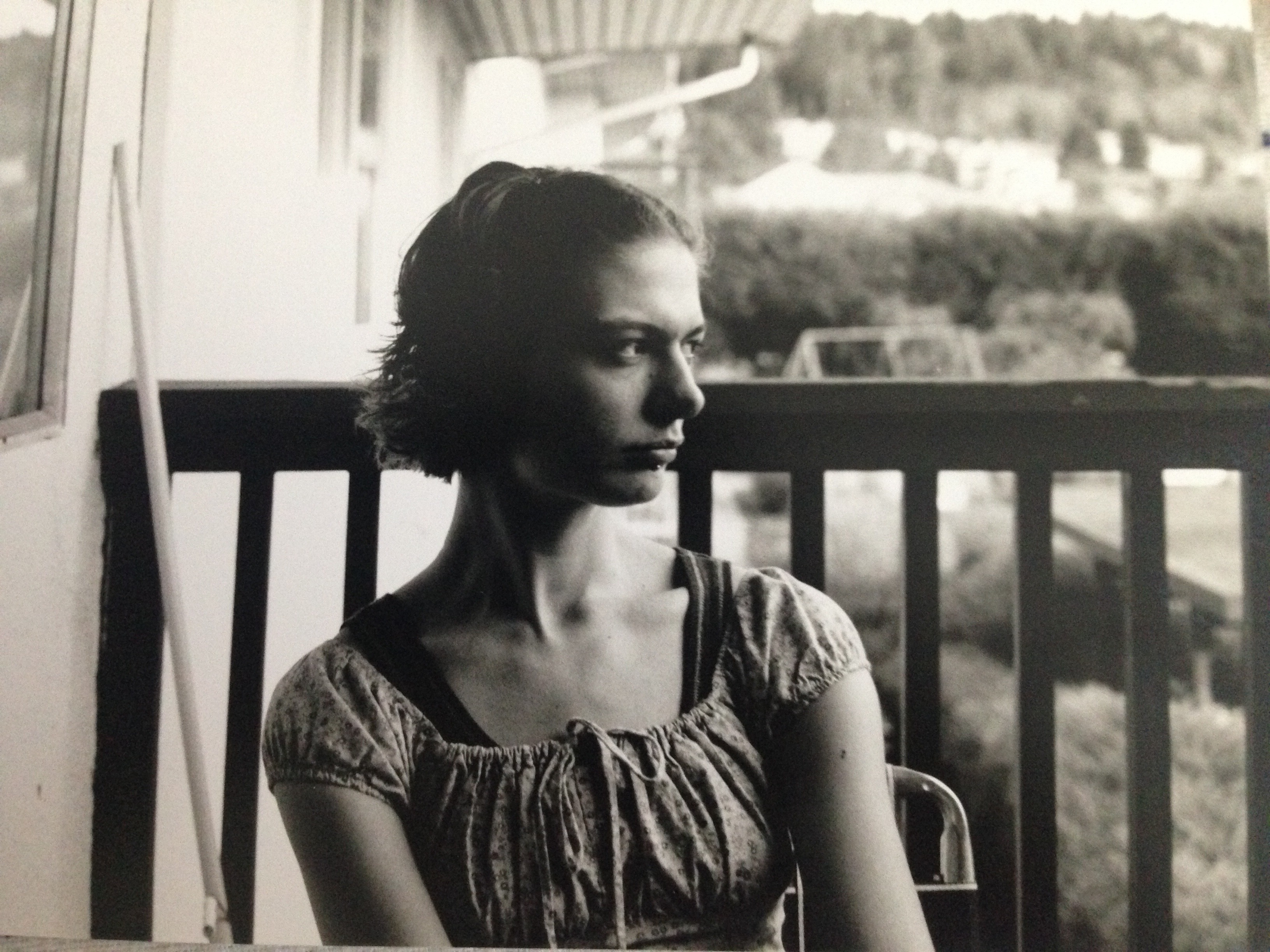- Stray: Memoir of a Runaway
- Little A (2018)
Tanya Marquardt’s terrific new memoir begins with an escape.
With two garbage bags of clothes, a knapsack full of textbooks, some cassette tapes and a copy of Hamlet, 16-year-old Marquardt fled her abusive childhood. “Whatever she is heading toward has to be better than what she is leaving behind” — so notes the book jacket of Stray: Memoir of a Runaway.
Marquardt spent her teen years couch surfing around Port Alberni trying to graduate high school, finding solace in art, alcohol and fellow “freaks.” It’s a brutal tale, but for Marquardt also “uplifting.” Years later, she finally felt able to share her story.
The Tyee reached out to Marquardt, who divides her time between Vancouver and New York City, to learn more about the process of writing her memoir and what’s next for her.
Tyee: Eat Pray Love this is not. Your story is discouraging in many ways.
Tanya Marquardt: Although my story winds its way through disparaging themes — abandonment, addiction, longing and abuse — the fact that I wrote it, that I survived and even thrived through becoming an artist and finding a chosen family of fellow artists, queers, and music lovers, is uplifting.
Stray is for the goth kid who listens to Depeche Mode and sits in the back of the classroom, the kid who feels outside of, whether they are queer, a POC, trans, or from a broken family, who needs to see how a person gets to the other side of teenagedom. And I made it to the other side. A little bruised but I made it.
Somehow your story feels distinctly B.C. Obviously it took place here (and the ferries play a prominent role) but also the wildness of it. I felt afraid for you constantly.
I do think Stray is a very particular story — one about what it is to be from a white, working class family on Vancouver Island, and the struggles that come from a lack of education, dysfunctional family situations, addiction and poverty. And when I look back on that time, I think of myself as a kind of wild dog — I had no centre, no idea what I was doing, and I found myself in situations that could have been potentially violent, especially sexually violent, like when I was mistaken for a prostitute or when I followed a drug dealer, alone, to his bedroom. My teenage years are a series of narrow escapes.
And that story of poverty continues. Port Alberni is struggling right now. The pulp mill employs less and less people, and there are major issues with drug addiction, and these can exacerbate racial tensions, domestic abuse, overdose and suicide.

But that is only a small part of what Port Alberni is. It is also a place of community and raw beauty. My parents live outside of the city, and I can look up and see the stars. That floors me every time I go home. And the people that I meet there, whether old high school friends who have stayed to raise families, or people working and living in the Tseshaht First Nation community, or folks working at the local Dairy Queen, love their town and their community in all its flaws and all its varied, gorgeous complexity. I want Stray to lean into that complexity, or at least, that’s what I wanted it to do when I was writing it.
The story takes us through your teen years up until high school graduation. What happened after that? How did you begin to heal?
After I graduated from high school, I went to theatre school — first at Capilano University (at that time it was a college) and then at Simon Fraser University’s School for the Contemporary Arts, where I trained with Mark Diamond, Penelope Stella and DD Kugler. I became a theatre artist and dancer, and eventually moved to New York where I pursued theatre, as well as writing Stray. My teacher, Mark Diamond, once told me that all artists come to the theatre because they are orphans looking for family, and then those who remain artists become interested in craft.
This is very much the case for me. I came to the theatre because I didn’t have a place to go and I had all of this impulsive, creative energy that needed to find form and expression. I found that in the theatre and in writing, and so I’ve stayed. I’ve become an artist. The healing part has been much more gradual, step by step and day by day. I’ve done what many people have done — gotten a therapist, changed self-destructive patterns. I got sober a few years ago and that has been a revelation for me because it’s made me a more present human being. And of course that loops back into my art-making, makes me a more present artist, writer and collaborator.
I enjoyed your moody descriptions of Vancouver in the ‘90s — there were apparently multiple nightclubs with multiple theme nights catering specifically to the goth-punk crowd, some even with BDSM dungeons in the basements. How do you perceive the changes in the city from then until today?
Yeah, I can become quite nostalgic for those ‘90s clubs — dancing at midnight to Skinny Puppy at the Twilight Zone while neon lights flickered across my face. It’s an image and a feeling of freedom I don’t think I will ever forget, an image of myself that might become more sentimental and romantic as I age. And all of that ‘90s music via Nettwerk — Skinny Puppy, Delirium, those first couple of Sarah McLachlan records — really speak to a specific moment in Vancouver. Now I split my time between Brooklyn, New York and Vancouver, and every time I come back to Vancouver the signs of gentrification become more apparent, and it is disturbing. There is, and has been, a homeless population for a long while in the Downtown Eastside, some struggling with drug addiction, and where do they go when Blood Alley turns into patisseries and micro-breweries instead of low-income housing? Where do any of us go when the housing market keeps going up?
A lot of artists can’t afford to live in the city, and that also scares me because I think that communities need storytellers. A lot of folks who do blue-collar jobs can’t live in the city, and when a city can’t include those who need assistance, when there is no space for culture and people from different cultures, as well as acknowledging the original stewards of the Coast Salish territories — the Tsleil-Waututh, Musqueam, and Squamish nations — then I think the life blood, the guts of the city, what makes it so wonderful, starts to fade. New York, which is part of the Lenape homeland, has been going through the same process, and I find it equally terrifying. I know for me, attempting to connect with the land, whether I am in Greenpoint or on Commercial Drive, has had an effect on me — made me want to be part of my communities, to help and to find ways to listen to everyone’s story. I love both of my homes, though I feel I am a visitor in both. I don’t know if that’s an answer, but it’s something that I do.
What’s your life like now?
It took me a decade to write Stray and I thought I would never write again once it was finished. But of course, that’s not true. I am writing new material, hopefully for a follow up memoir to the book. And in July I will be working with local theatre company Theatre Conspiracy to bring a performance based on Stray to Vancouver, where I will perform the show where the story took place. That means a lot to me. So yeah, my life is full of art, and writing, and I love it. ![]()
















Tyee Commenting Guidelines
Comments that violate guidelines risk being deleted, and violations may result in a temporary or permanent user ban. Maintain the spirit of good conversation to stay in the discussion.
*Please note The Tyee is not a forum for spreading misinformation about COVID-19, denying its existence or minimizing its risk to public health.
Do:
Do not: